Related Research Articles
Lebanon is a parliamentary democratic republic within the overall framework of confessionalism, a form of consociationalism in which the highest offices are proportionately reserved for representatives from certain religious communities. The constitution of Lebanon grants the people the right to change their government. Article 7 of Lebanon's Constitution also states that all Lebanese are equal before the law, and are "equally bound by public obligations and duties without any distinction" Meaning that all Lebanese citizens- politicians included- are to be held to the same standards of the law, and yet this is not the case. However, from the mid-1970s until the parliamentary elections in 1992, the Lebanese Civil War (1975–1990) precluded the exercise of political rights.
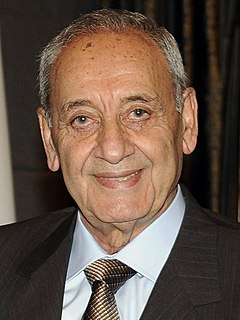
Nabih Berri is a Lebanese politician who has been serving as Speaker of the Parliament of Lebanon since 1992. He heads the Amal Movement.

Michel Naim Aoun is a Lebanese politician who has been serving as the President of Lebanon since 31 October 2016, where he was elected during the 46th electoral session of the Lebanese Parliament, breaking a 29-month deadlock.
Elections in Lebanon are allotted to occur every four years. Every citizen is allowed to vote, but the positions are constitutionally allocated by religious affiliation. In 2014, the Parliament failed to elect a president and extended its own term.

The Amal Movement is a Lebanese political party affiliated with the Shia sect. Founded by Musa al-Sadr in 1974, the party is led by Nabih Berri since 1980.

The Parliament of Lebanon is the national parliament of Lebanon. There are 128 members elected to a four-year term in multi-member constituencies, apportioned among Lebanon's diverse Christian and Muslim denominations but with half of the seats reserved for Christians per Constitutional Article 24. Lebanon has universal adult suffrage. Its major functions are to elect the President of the republic, to approve the government, and to approve laws and expenditure.

The Democratic Left Movement is a nonsectarian and a democratic leftist political party. It was founded in September 2004 by left-wing and center-left intellectuals and activists some of whom had previously split from the Lebanese Communist Party (LCP) while some were student activists from the "Independent Leftist Groups". The DLM affirms a European-style social democracy—but is open to all forms of leftism and encourages the development of a true secular state. The party operates under a decentralized framework that emphasizes diversity of thought for a progressive democratic society in a liberal democratic environment. It participated in the 2005 Cedar Revolution, a wave of demonstrations against the Syrian occupation of Lebanon, and calls for correcting imbalanced relations with Syria.
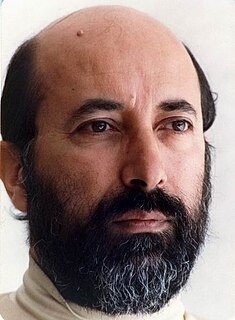
Mostafa Chamran Save'ei was an Iranian physicist, politician, commander and guerrilla fighter who served as the first defense minister of post-revolutionary Iran and a member of parliament, as well as the commander of paramilitary volunteers in Iran–Iraq War, known as "Irregular Warfare Headquarters". He was killed during the Iran–Iraq War. In Iran, he is known as a martyr and a symbol of an ideological and revolutionary Muslim who left academic careers and prestigious positions as a scientist and professor in the US, University of California, Berkeley and migrated in order to help the Islamic movements in Palestine, Lebanon, Egypt as a chief revolutionary guerilla, as well as in the Islamic revolution of Iran. He helped to found the Amal Movement in southern Lebanon.

Najah Wakim is a Lebanese politician who served as member of parliament from 1972 to 2000. He is the president of the People's Movement.
Along with the Amal Movement, Hezbollah is one of the two main parties representing the Shia community, Lebanon's largest religious bloc. Amal has made a commitment to carrying out its activities through political means, but remains a partial fighting force aiding Hezbollah when the need arises.

Kamel Bey El-Assaad was a Lebanese politician.
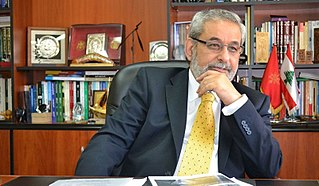
Hagop Pakradounian, originally Hagop Pakradouni is a Lebanese politician of Armenian descent.
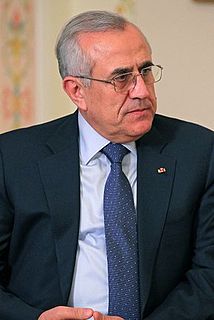
Michel Suleiman is a Lebanese Maronite Christian politician who served as President of Lebanon from 2008 to 2014. Before becoming president, he served as commander of the Lebanese Armed Forces from 1998 to 2008.
Hani Kobeissy is a Shia Lebanese member of parliament who was elected in 2009 to represent the Shiite seat in the Beirut II district. He is part of the Amal Movement.
Ali Hassan Khalil is a Lebanese politician, Member of Parliament, and former Minister of Finance.
Ghazi Zaiter is a Shia Lebanese member of parliament representing the Baalbeck/Hermil district. He served as Minister of Defense, Agriculture, Public Works, Industry and Social Affairs. He is part of the Amal Movement led by Nabih Berri which is part of the opposition after the 2009 election.Ghazi shares 3 kids with Rola: Lama 32, Mohammed 31, and Ziad 27.
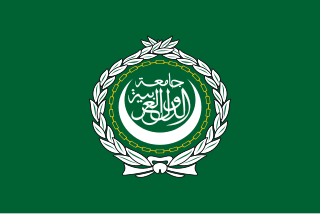
The Economic and Social Council of the Arab League is an institution of the Arab League that co-ordinates its economic integration. The ESC was established as the Economic Council under the terms of the Joint Defence and Economic Co-operation Treaty (1950). and held its first meeting in 1953. In 1957, the ESC established the Council of Arab Economic Unity (CAEU) and, in February 1997, the ESC adopted the Agreement to Facilitate and Develop Trade Among Arab Countries (1981) in pursuit of the Greater Arab Free Trade Area (GAFTA).
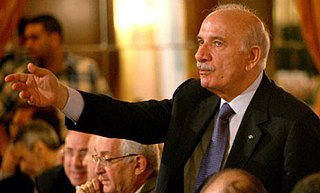
Sayyid Hussein El-Husseini is a Lebanese politician and former speaker of the Lebanese parliament, whose efforts in brokering and fathering the Taif Agreement led to the end of the Lebanese Civil War in 1990. El-Husseini, as co-founder of the Amal Movement, is regarded as one of the founders of the Lebanese resistance. He succeeded Musa al-Sadr as leader of the Amal Movement, but resigned from his position in 1980 as he was opposed to Amal becoming increasingly more involved in the civil war.

General elections were held in Lebanon on 6 May 2018. Although originally scheduled for 2013, the election was postponed three times in 2013, 2014 and 2017 under various pretexts, including the security situation, the failure of the Parliament to elect a new President, and the technical requirements of holding an election. A new electoral law adopted in 2017 provides a proportional representation system for the first time.

Ali Al Shami is a Shia Lebanese academic and a member of the Amal movement. He was Lebanon's minister of foreign affairs and emigrants from 2009 to 2011.
References
- ↑ "Lebanese Elections, 2009". The Lebanese Community News Journal. Archived from the original on 2010-11-23. Retrieved 2010-08-09.
- ↑ "Winners". Naharnet. Archived from the original on 2009-08-31. Retrieved 2010-08-09.